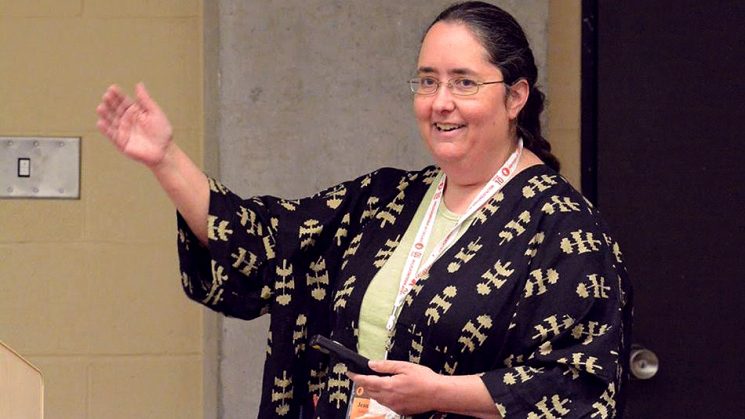
This is one in a series of five Q&As with the members of NC State’s Leadership in Public Science faculty cluster. Read more about the cluster.
Who better than a communication scholar to study the ways in which scientists and the public communicate with each other — and how those communications shape both science and the way people view it?
Jean Goodwin, a professor in NC State’s Department of Communication, has done research in a variety of areas — often aimed at understanding how people can share information effectively, even when they disagree. Given the heated public debates surrounding many scientific topics, that’s a good background to have. And her work connecting theoretical research with practical science communication tools is clearly relevant to the university’s focus on Leadership in Public Science.
Learn about Goodwin’s work and what drew her to focus on the way people talk about science.
What does your research focus on?
I examine how people who disagree, perhaps deeply, nevertheless manage to have productive exchanges of arguments with each other. I’m particularly interested in the roles scientists and other experts can play to support good decision-making, even on contentious issues.
What does “public science” mean to you, and how does it factor into your work?
“Public science” is a usefully ambiguous label that allows NC State to bring together a variety of activities that other universities wall off in separate units — crowdsourcing in research, science education in informal settings and science communication of all stripes. Under our big tent belongs any activity that makes the boundary between scientists and publics more permeable, whether by bringing publics into science or taking science out to publics.
What drew you to public science in the first place?
After I got tenure, I wanted to do work that had some immediate relevance to my community — at that time, Iowa State University. I was focused on how civic controversies worked. So I started attending any sort of symposium or lecture where scientists were addressing contentious issues. Surprise — there were a lot of them: climate change (of course), sustainable agriculture, biofuels (did first-generation corn-based ethanol produce more energy as fuel than it took to make it?), GMOs. The arguments I heard scientists make were interesting, and even more interesting were the arguments scientists were having among themselves about how (or whether) they should engage in these controversies at all. So I got hooked on researching how scientists can contribute to public life.
What sort of public science projects are you working on right now?
With my colleagues in the Public Science cluster, I’m working to build a curriculum so that STEM graduate students can develop their public science skills and get a certificate to prove it. We are also developing a first graduate seminar for that curriculum. Since most scientists learn public communication skills through independent practice, I’m also putting together materials that will provide research-based guidance for self-teaching.
With my cluster comrade Caren Cooper, I have an interest in the long term and potentially transformative impacts of public science. Does practicing science with publics make you a better scientist — more creative in developing research questions, more sensitive to the potential limitations of methods, more able to maneuver through the social system that is science? Does developing your public communication skills change your deeper attitudes about the social responsibilities of scientists and make you more committed to answering the big “So what?” questions?
I also continue to be interested in the scientific community’s culture of communication. The social media discourse surrounding the recent March for Science opens a unique window into what ordinary scientists and engineers think about their abilities and responsibilities in public engagement. So I’m hoping to get funding to study this discourse, and to archive and share it widely.
This post was originally published in NC State News.